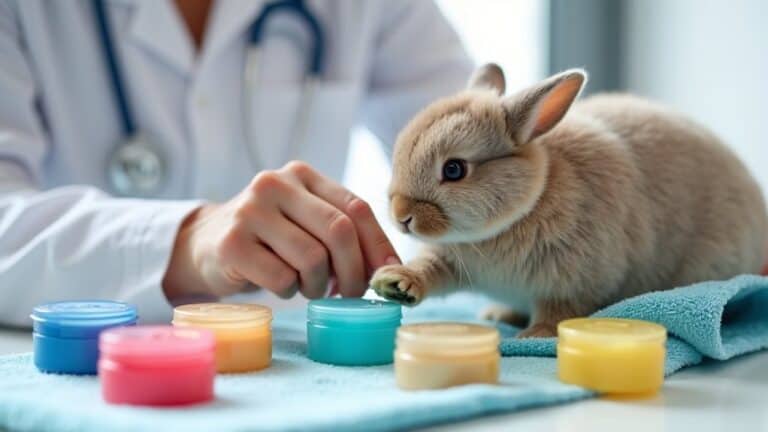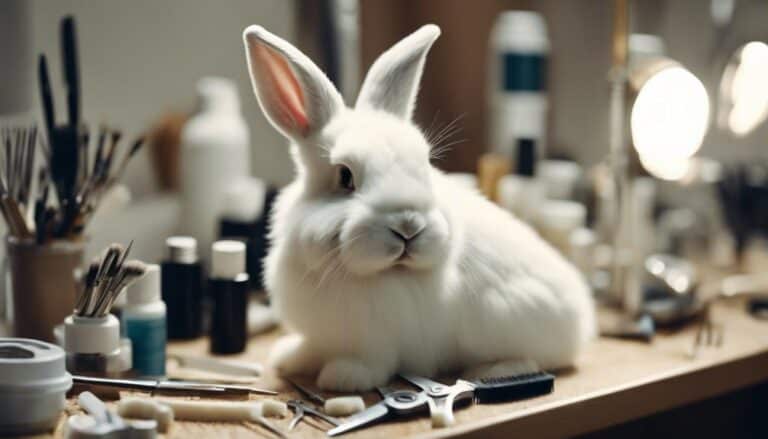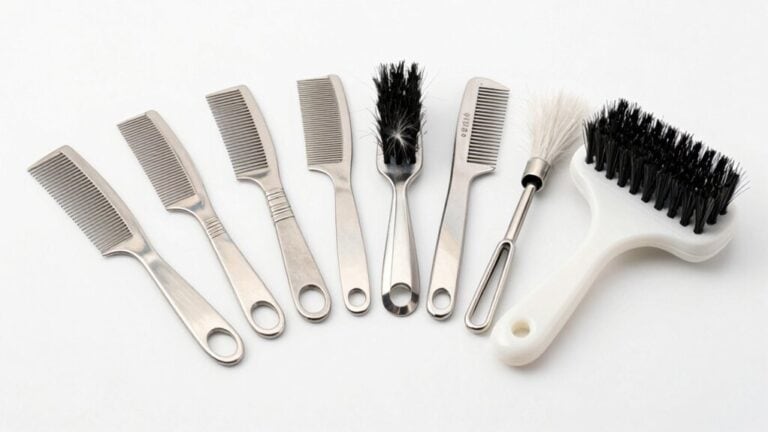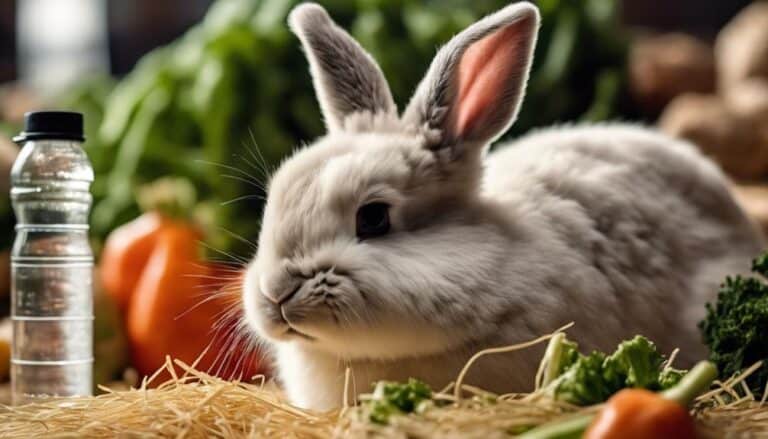Wondering what diet is best for your senior bunnies?
As your furry companions age, their nutritional needs change, requiring a closer look at their food intake.
Ensuring they receive the right balance of nutrients is vital, but how exactly do you navigate this aspect of their care?
Let's explore the key components of a senior bunny's diet and how you can optimize their food choices to support their health and longevity.
Contents
- 1 Key Takeaways
- 2 Dietary Needs of Senior Bunnies
- 3 Importance of Hay in Bunny Diet
- 4 Selecting the Right Pellets for Seniors
- 5 Incorporating Fresh Greens and Vegetables
- 6 Monitoring Treats for Senior Bunnies
- 7 Hydration and Water Requirements
- 8 What Are the Best Diet Tips for Senior Bunnies?
- 9 Frequently Asked Questions
- 10 Conclusion
Key Takeaways
- Prioritize high-fiber hay for digestion, dental health, and overall well-being.
- Choose high-fiber, low-protein pellets with essential nutrients and no additives.
- Include varied fresh greens like kale and parsley for hydration and nutrients.
- Monitor water intake, limit treats, and consult a vet for personalized dietary guidance.
Dietary Needs of Senior Bunnies
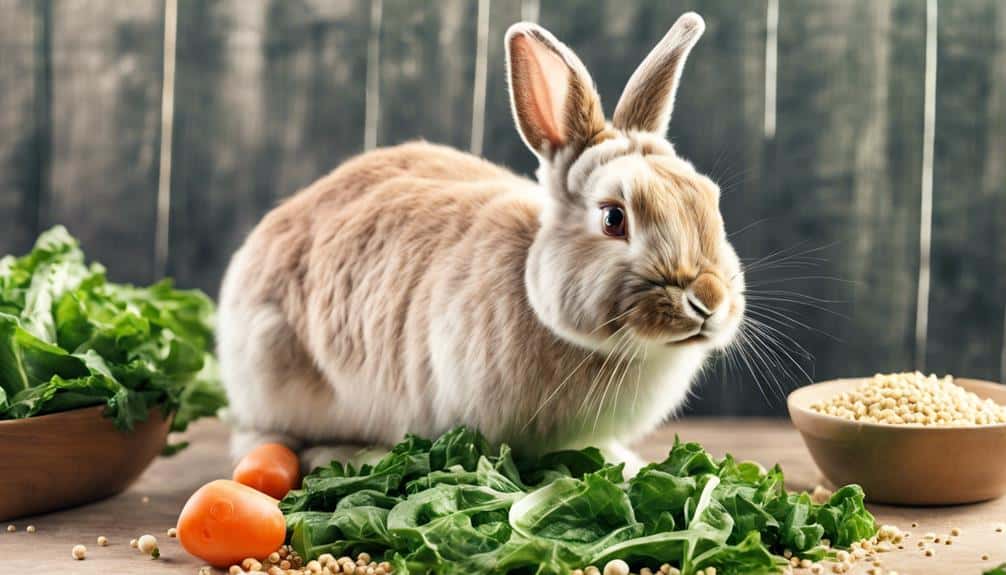
When caring for senior bunnies, prioritize their dietary needs to guarantee their health and well-being. Senior rabbits require a diet tailored to their age, which includes high-fiber hay to aid digestion and maintain dental health.
Incorporating leafy greens such as kale, parsley, and cilantro is essential as they provide necessary nutrients and help with hydration for aging bunnies. It's essential to offer limited pellets to prevent obesity and ensure a balanced diet for your senior rabbit.
Hydration is key, so always make sure fresh water is readily available to prevent kidney issues in older bunnies. To address individual health needs and manage weight effectively, consult with a veterinarian who can provide guidance on crafting a diet specific to your senior rabbit's requirements.
Importance of Hay in Bunny Diet
To guarantee excellent health and well-being for your senior bunny, prioritize the inclusion of high-quality hay in their diet to support essential fiber intake and dental health.
Hay plays an important role in a senior rabbit's diet by providing the necessary fiber for ideal digestive health. High-quality hay also aids in wearing down your bunny's teeth, helping prevent common dental issues that often arise in aging bunnies.
Senior rabbits should have unlimited access to hay to promote a healthy digestive system and overall well-being. Varieties like timothy hay or orchard grass offer different nutrients beneficial for senior bunnies.
Selecting the Right Pellets for Seniors
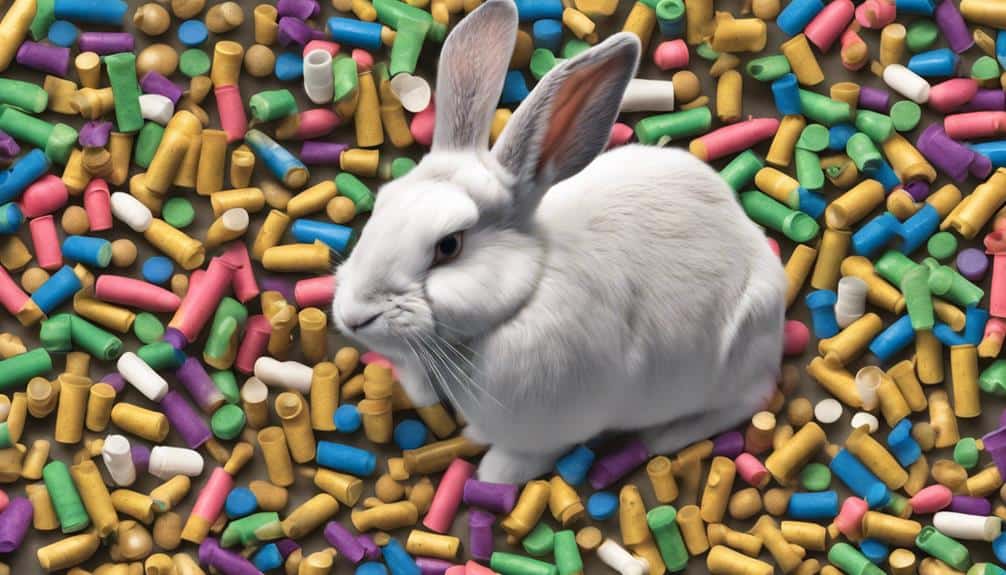
Select pellets specifically formulated for senior rabbits to cater to their changing nutritional requirements, ensuring prime health and well-being as they age.
When choosing pellets for senior rabbits, opt for options that are high in fiber and low in protein to support digestion and prevent obesity.
Make sure that the pellets contain essential vitamins and minerals such as Vitamin C, calcium, and phosphorus to maintain bone health in aging bunnies.
It's important to avoid pellets with added sugars, artificial colors, or preservatives that can be harmful to senior rabbits' sensitive digestive systems.
Consulting with a vet is highly recommended to determine the appropriate pellet brand and quantity based on your senior bunny's individual health requirements.
Incorporating Fresh Greens and Vegetables
When feeding your senior bunny, remember to include nutrient-rich leafy greens like kale and parsley for essential vitamins and minerals.
Offering a variety of vegetables such as bell peppers and carrots guarantees a balanced diet that supports their overall well-being.
Keep their food fresh and properly stored to maintain peak nutrition for your senior bunny.
Nutrient-Rich Leafy Greens
Incorporate a variety of nutrient-rich leafy greens into your senior bunny's diet to make sure they receive essential vitamins and minerals for best health.
Offer fresh greens and vegetables like kale, parsley, bok choy, and cilantro to support their digestive health.
Rotate greens regularly to provide a balanced diet and prevent boredom.
Limit high-calcium vegetables like spinach and beet greens to avoid potential urinary issues in senior bunnies.
Make sure greens are thoroughly washed and free from pesticides before feeding them to your senior rabbit.
Variety for Balanced Diet
To guarantee a well-rounded diet for your senior bunny, enrich their meals with a diverse selection of fresh greens and vegetables rich in essential nutrients. Senior rabbits benefit greatly from a varied diet that provides balanced nutrition.
Incorporate leafy greens such as kale, parsley, and cilantro to make sure they receive essential vitamins and minerals. Rotate vegetables like bell peppers, carrots, and broccoli to offer a wide array of nutrients necessary for their well-being.
Remember to avoid high-sugar fruits and high-starch vegetables to maintain a healthy diet for your senior bunnies. By offering a mix of fresh greens and vegetables, you can make sure your furry friend receives the diverse nutrients needed to thrive in their golden years.
Freshness and Proper Storage
For best nutrition and freshness in your senior bunny's diet, make sure you incorporate a variety of fresh greens and vegetables rich in essential nutrients.
- Rotate Greens: Include kale, parsley, and cilantro for a diverse range of vitamins and minerals.
- Refrigerator Storage: Store fresh greens properly to maintain their nutritional value and prevent spoilage.
- Thorough Washing: Wash greens meticulously to eliminate any pesticides or harmful residues before feeding them to your senior bunny.
- Gradual Introduction: Introduce new vegetables slowly to monitor for any digestive issues or allergies in your senior rabbit.
- Hydration & Nutrition: Make certain your senior bunny's diet includes a mix of fresh greens and vegetables to provide hydration and essential nutrients.
Monitoring Treats for Senior Bunnies
When monitoring treats for your senior bunny, make sure that their daily intake doesn't exceed 5-10% of their diet to prevent weight gain. Opt for healthy options such as leafy greens, herbs, or small fruit slices to provide nutritional value without compromising their health. Steer clear of sugary, fatty, or processed treats that can lead to various health issues in older rabbits.
It's important to monitor treat intake closely to avoid digestive issues or imbalances in their diet, which can impact their overall well-being. Consult with a vet to get specific treat recommendations tailored to your senior bunny's dietary needs, ensuring they stay healthy and happy in their senior years.
Hydration and Water Requirements
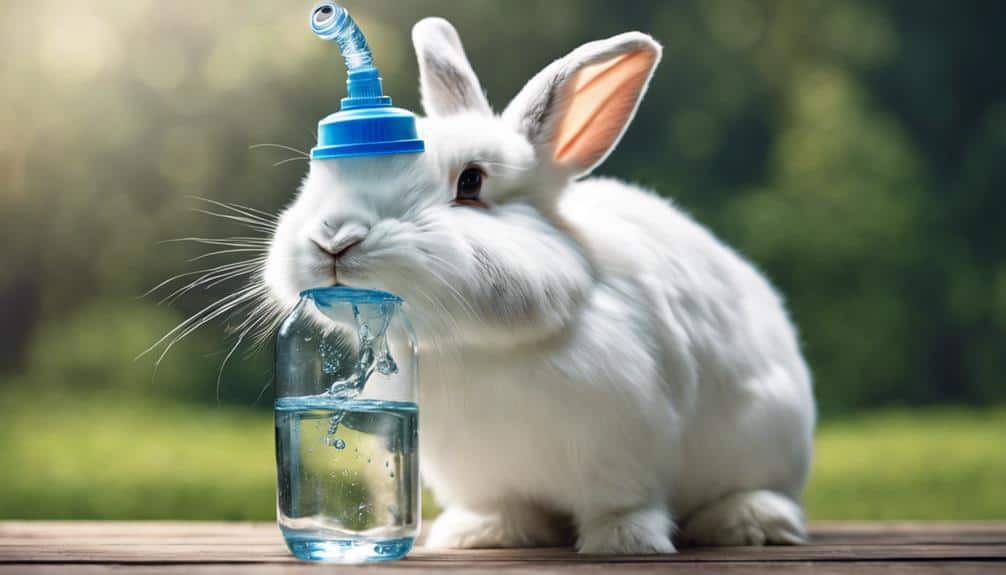
Guarantee your senior bunny has constant access to fresh water to prevent dehydration and maintain their overall health. Here are some essential tips to ensure proper hydration for your aging rabbit:
- Monitor Water Intake: Keep an eye on your senior bunny's drinking habits as changes could indicate underlying health issues.
- Clean Water Bowls: Make sure water bowls are cleaned regularly and filled with fresh water daily to promote hydration.
- Kidney Function: Adequate hydration is important for supporting kidney function in older rabbits.
- Stable Containers: Provide water in stable containers that are easily accessible for senior bunnies.
- Health Issues: Hydration plays an important role in digestion, temperature regulation, and overall health for aging rabbits.
What Are the Best Diet Tips for Senior Bunnies?
When it comes to ensuring a complete senior rabbit diet, there are a few tips to keep in mind. First, focus on providing ample hay, veggies, and limited pellets to maintain a healthy weight. Additionally, make sure your senior bunny has access to fresh water at all times.
Frequently Asked Questions
What Age Is a Rabbit Considered Senior?
As a senior rabbit, you reach that status around 6-8 years old, with factors like breed size influencing when you're considered a senior. Tailoring your care to address health concerns, exercise needs, and nutritional requirements is essential for your well-being.
How Do You Help Senior Rabbits Gain Weight?
To help your senior rabbit gain weight, incorporate high-calorie treats, nutrient-rich pellets, fresh greens, weight gain supplements, and healthy snacks. Guarantee slow feeding, regular checkups, a balanced diet, and an exercise routine to support their health.
Is It Normal for a Senior Rabbit to Lose Weight?
As senior rabbits age, weight loss can be common due to various factors. Monitor your bunny's weight closely and consult a vet if significant changes occur. Guarantee a balanced diet with high-fiber foods to support their health.
How Do You Feed an Old Rabbit?
When feeding an old rabbit, consider dietary changes, health considerations, and age-related changes. Provide a senior diet with high-fiber hay, leafy greens, and limited pellets. Monitor weight, offer special care, and consult a vet for meal planning.
Conclusion
To sum up, ensuring that senior bunnies have a well-balanced diet is like tending to a delicate garden – it requires careful attention and nurturing.
By providing constant access to hay, nutritious pellets, fresh greens, and monitoring their water intake, you can help your aging bunny thrive.
Remember, just like a garden needs proper care to flourish, so too does your senior bunny's diet to maintain their health and well-being as they age.



